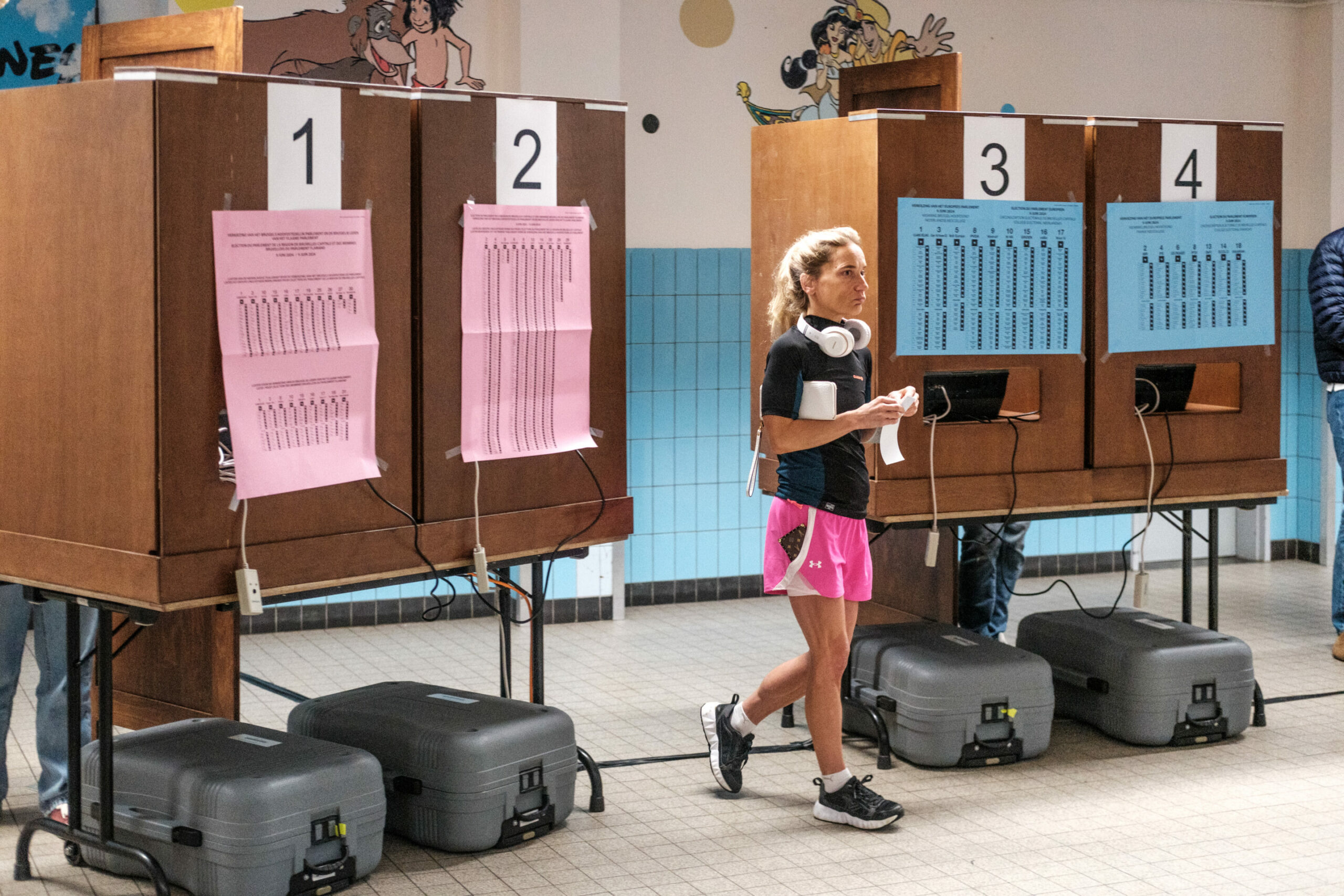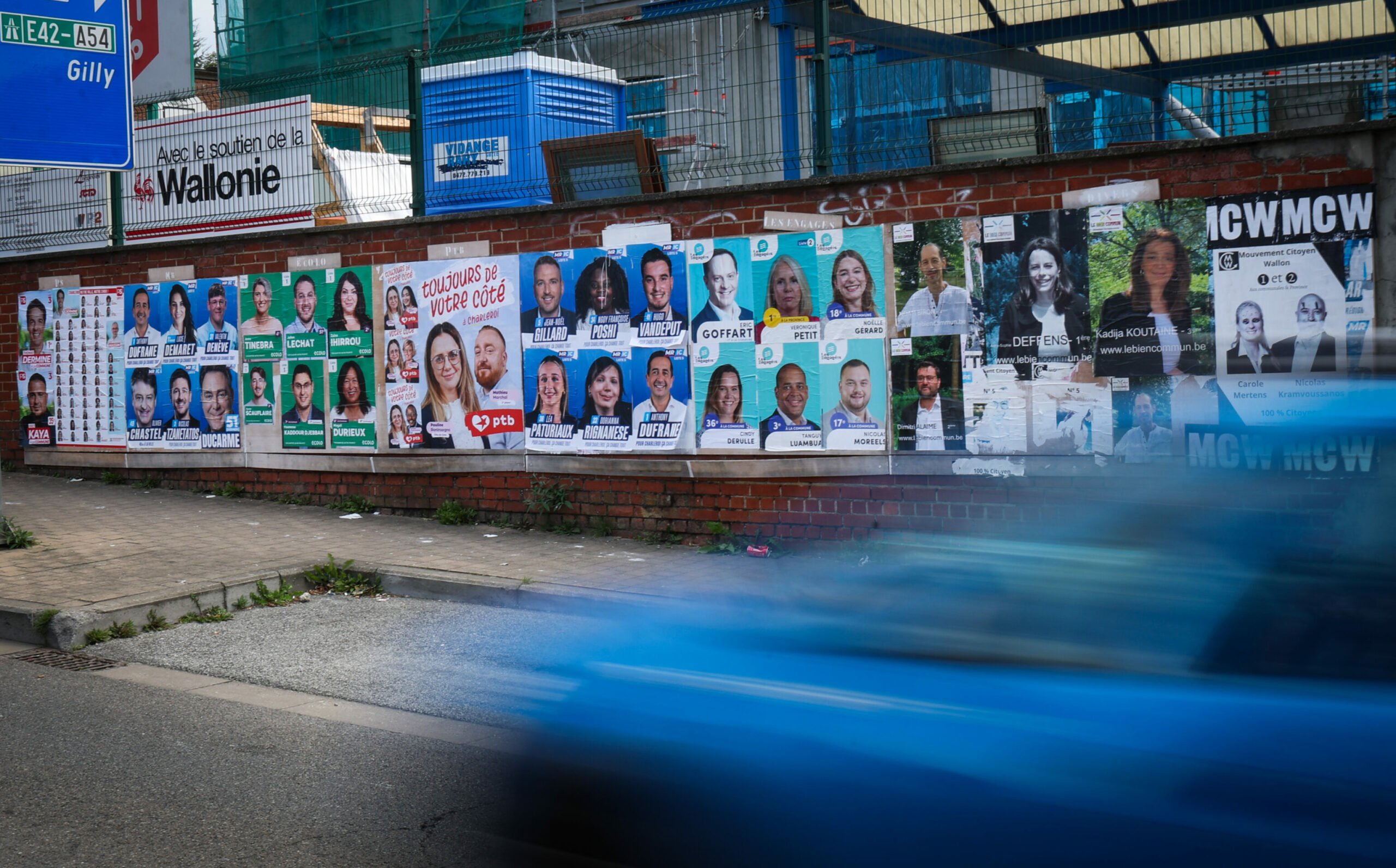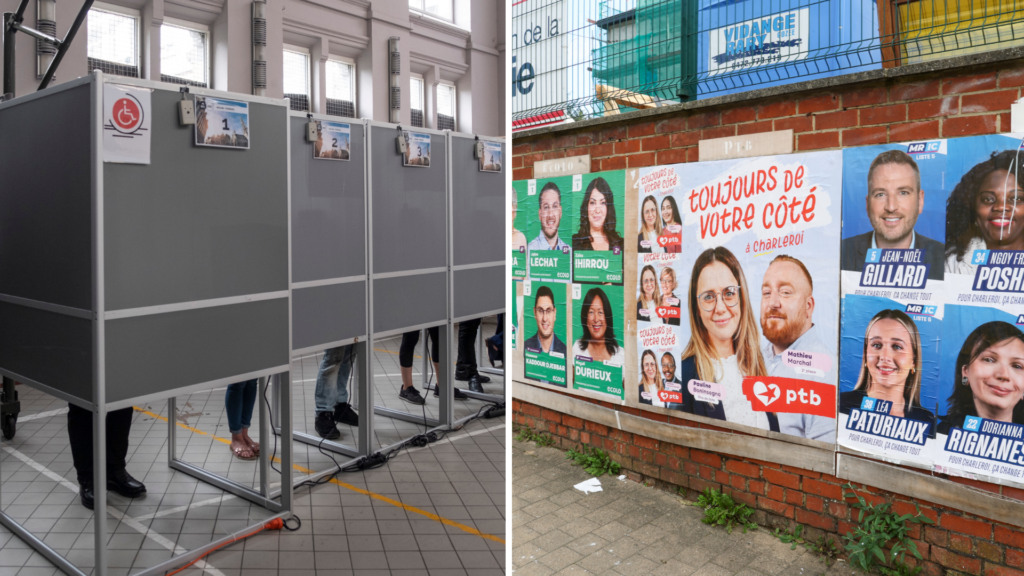In just over two weeks, people in Belgium will be casting their vote for the second time in just three months, now in the local elections. This guide details the practicalities of what to know before and on 13 October.
After voting in the regional, federal and European elections on 9 June – for which, on the Flemish, Brussels and Federal level, formation talks are still ongoing – people in all of Belgium's 581 municipalities will again cast their vote on Sunday, 13 October, this time to elect their municipal and provincial councils (only municipal in Brussels).
These elections affect people much more directly and on a daily level given the power which communes have in Belgium's political system. This vote is particularly important for foreign nationals, who can also have their say in these elections. In Brussels, where non-Belgians account for one-third of the population, this is particularly important.
For first-timers, or for those who have forgotten the practicalities since the last local elections, The Brussels Times has reviewed all there is to know before voting on 13 October.
Who is eligible to vote on 13 October?
By now, it should be clear who is eligible to vote, but just in case, here is a re-cap.
Until this year, all Belgian nationals over the age of 18 were obliged to turn up to vote in the local elections, however, compulsory voting is now abolished in Flanders. In Brussels and Wallonia, people are still obliged to vote.
Not just Belgians, but all EU nationals as well as non-EU nationals who have been in Belgium for at least five years can vote on 13 October. Unlike Belgian nationals, they had to register for the October local elections. People who still want to sign up have sadly missed the deadline, which in Belgium is set quite early (on 31 July).

Credit: Belga / Hatim Kaghat
Non-Belgians are not obliged to vote, however, once registered, going to the polling station on election day is compulsory. It is also no longer possible to deregister.
"As a non-Belgian, it's your choice to sign up to the electoral list and also your choice to deregister, but you can't do it in the period between 31 July and the elections because the voter lists are frozen on 1 August," Bryn Watkins, communications and project manager at commissioner.brussels told The Brussels Times.
The total number of non-Belgians who registered to vote in the local elections in Brussels exceeds 50,000 (about 16% of the roughly 310,000 potential voters), accounting for 7.7% of registered voters here. "In four municipalities – Saint-Gilles, Ixelles, Saint-Josse-ten-Noode, and Etterbeek – non-Belgians make up more than one in ten voters," Watkins said.
In Belgium as a whole, around 162,780 non-Belgians (both EU and non-EU citizens) have registered to vote. More than 8.3 million Belgian people are eligible to vote, however, in Flanders, the turnout will likely be lower.
What exactly is being voted on?
People in Brussels will only be electing municipal councils, which are essentially mini-local governments, responsible for making laws at the local level and the daily administration of the municipality.
Councils vary in size from seven to 55 members (27 to 49 members in Brussels), depending on that municipality's population. Members vote on the municipal regulations and decisions, the budget and the accounts.
All parties running in the municipal elections had to submit "a list" of candidates representing them.
In Brussels, 124 lists and 3,809 candidates will be running on 13 October. In Flanders, 33,458 people are running on 1,453 municipal council lists, while in Wallonia, there are 17,326 candidates on 1,073 lists. These lists are more vary from the regional and federal elections, as many are cross-party joint lists. Find more about how the lists for the local elections work and how to vote here.
In Wallonia and Flanders, provincial councils – the governing body of a province – are also being elected. This council has a legislative and controlling function but also receives tasks from higher authorities. The provincial governor is the head of a province.

Election posters for local elections. Credit: Belga/Virginie Lefour
Municipal elections look a little different in the city of Antwerp, as people here can also vote for district council candidates (the city of Antwerp is divided into nine districts). They set policies for a limited number of powers such as sports, youth, culture, seniors and the layout of (part of) the streets.
Finally, in six municipalities in the Flemish periphery around Brussels (Sint-Genesius-Rode, Linkebeek, Drogenbos, Wemmel, Kraainem and Wezembeek-Oppem) and the facility municipalities of Komen-Waasten and Voeren, residents can also vote for the Councils for the Public Centres for Welfare (OCMW).
Where do I vote?
Online voting is not possible, as all votes must be cast in person in the municipality where the voter is registered. The convocation letter inviting people to vote, which should be received by the voter by post at least 15 days before the elections, will state the exact polling station location. People with disabilities should be offered free transport to and from the polling station.
All polling stations open at 08:00, while the closing time depends on whether voting is done on paper (in which case they close at 13:00) or electronically (open until 15:00). The opening hours are also mentioned on the invitation letter. In all 19 Brussels communes and most Flemish communes, voting is now done digitally, while in Wallonia all voting is done on paper.
Voters must bring this note (a new letter can be requested at the city hall if it's lost) and an identity card or passport when they go to vote. Upon entering the polling booth, voters are presented with a digital or physical ballot paper. Those who vote digitally must enter their votes through a computer screen, while those voting on paper must mark the party or candidate's box with a red pencil.
Absent or don't want to vote?
In Brussels and Wallonia, people are legally obliged to turn up at the polling station and enter the voting booth. Those who do not show up officially risk a penalty of €40 up to €80, but people are rarely prosecuted and seldom fined. Failing to show up at the polls four times in 15 years can result in losing the right to vote for ten years.
Actually casting a vote, however, is not mandatory: people can choose to cast a "blank vote" or make their vote invalid vote by ticking various lists or candidates from different lists (this is only possible when voting on paper, as the computer will display an error message). Crossing out names or drawing a picture on the paper ballot form also makes a vote invalid.
In the 9 June elections, Belgium saw a record number of electoral abstentions, with over 1.05 million voters (12.5% of the electorate) shunning the polls, 100,000 more than in 2019. The number of spoiled ballots, however, decreased slightly compared to five years ago.
Related News
Cannot vote? People who are unable to vote due to illness, disability, work, travelling (for work or on holiday), or any other reason can select a "proxy" for someone to vote in their place. However, that person must be eligible to vote (but not necessarily in the same commune as the person for whom they are voting). They must also vote for themselves first before voting for another person, and can only vote by proxy once per election.
The proxy form (there are different ones for Flanders, Brussels and Wallonia) has to be filled out in good time before the elections (12 October at the latest).

